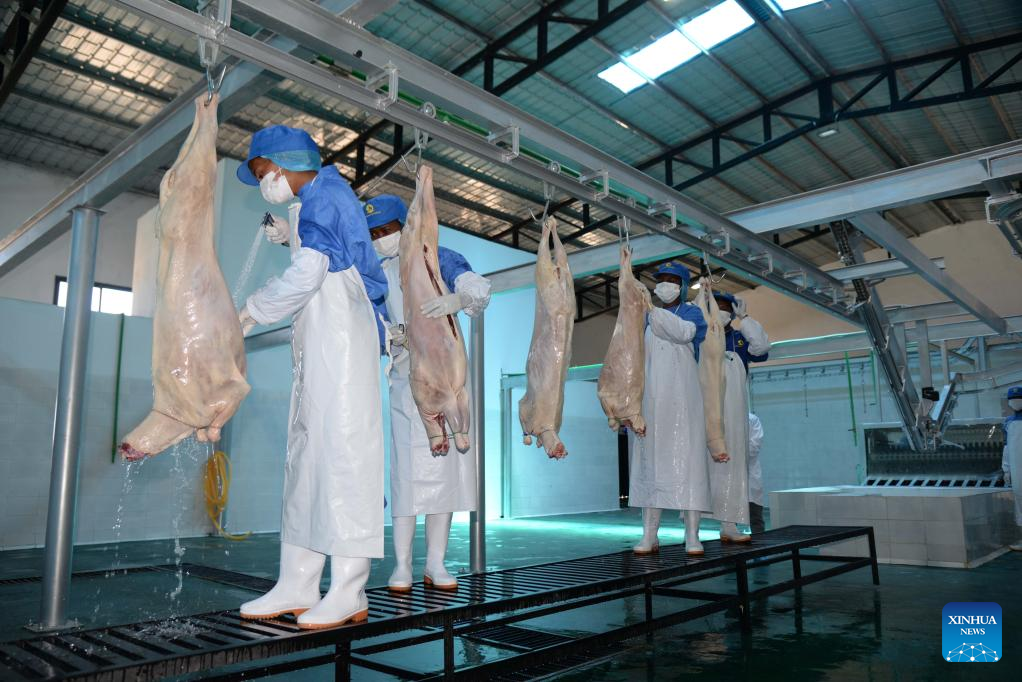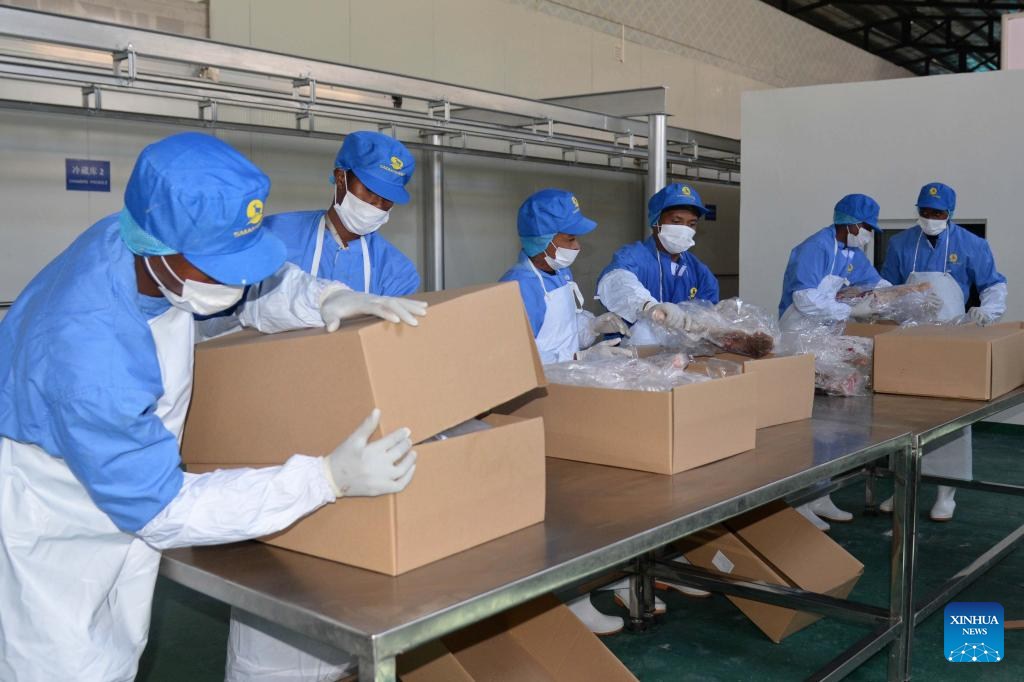
Michel Anondraka, director general of agriculture and livestock at Madagascar's Ministry of Agriculture and Livestock, receives an interview with Xinhua in Antananarivo, Madagascar, Sept. 11, 2024. (Photo by Sitraka Rajaonarison/Xinhua)
ANTANANARIVO, Sept. 13 (Xinhua) -- China's huge market for Madagascar's mutton and goat meat would boost production for local livestock farmers and speed up the African country's agricultural modernization, said Michel Anondraka, director general of agriculture and livestock at Madagascar's Ministry of Agriculture and Livestock, in a recent interview with Xinhua.
A shipment of frozen mutton and goat meat from Madagascar was cleared through customs Sunday in Changsha, the capital of central China's Hunan Province, marking China's first imports of these types of meat from Africa and an important step forward in the meat trade between China and Africa.
"Thanks to this export, (Madagascar's) livestock farmers will have a secure market, which will boost their production, increase their income, and earn more foreign currency," said Anondraka.
Historically, Madagascar has exported live animals to neighboring islands such as Mauritius and Comoros, but this time it is a much larger market.
The senior Malagasy official said this transition to exporting meat instead of live animals will retain more added value in the country. "With China, exporting meat has an additional advantage: the by-products remain in Madagascar and can be used locally," he said.
Anondraka stressed that maintaining high health standards is crucial to reassure Chinese consumers and "perpetuate" the export. "We are going to make every effort to guarantee the quality and safety of exported products in order to avoid any obstacles to this trade," he said.
The director general hoped to take Sino-Malagasy cooperation in agricultural modernization even further. Indeed, mechanization and innovative techniques to improve productivity in the agricultural sector are priority areas for this collaboration.
Technological innovations are already underway, including the digitization of animal tracking through electronic tags to identify small ruminants, Anondraka said. Meanwhile, his ministry is in the process of setting up a database and a digital platform to track animal movements.
"Livestock farming in Madagascar still suffers from low levels of productivity, but with the contribution of new technologies, we hope to reverse this trend," said the senior official, assuring small-scale livestock farmers of his ministry's support. "We are going to encourage young people to become entrepreneurs and contribute to the development of the livestock sector."
Since the partnership with China began at the start of this century, significant progress has been made, in particular with the introduction of technologies such as hybrid rice, which has considerably increased yields. By increasing local production and guaranteeing commercial outlets for farmers, this cooperation can reduce poverty in rural areas.
At the Summit of the Forum on China-Africa Cooperation, held in Beijing from Sept. 4 to 6, China announced ten partnership initiatives to support Africa in strategic areas such as agriculture and trade, which impressed Anondraka most. He considered the agriculture and trade initiative as "a major opportunity" to modernize Madagascar's agriculture and increase productivity in the livestock sector.
He believed it is essential to move toward large-scale agriculture, supported by advanced technologies and modern equipment supplied as part of the partnership with China. "We expect this cooperation to provide material support that will enable us to develop added value and create jobs," he said.
With the agreement signed between Madagascar and China and a market already established, the country is now looking to more profitable and sustainable exploitation of its animal resources. According to Anondraka, Madagascar has set itself an ambitious target to quadruple its production of small ruminants to 30 million head by 2028. This objective will be achieved through a combination of modern techniques and intensification of production, supported by the efforts of his ministry and its Chinese partners, said the director general.
The exemption from customs duties for the majority of Malagasy exported products to China is seen as a "major support", according to him. "It is a strong incentive for us to increase production. It's a huge support, and it's our responsibility to be effective in achieving our objectives," said Anondraka. ■

Staff members prepare the mutton that are about to export to China in Antananarivo, Madagascar, Sept. 11, 2024. (Photo by Sitraka Rajaonarison/Xinhua)

Staff members pack the mutton that are about to export to China in Antananarivo, Madagascar, Sept. 11, 2024. (Photo by Sitraka Rajaonarison/Xinhua)
